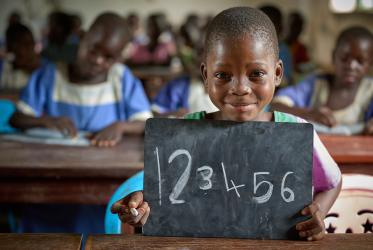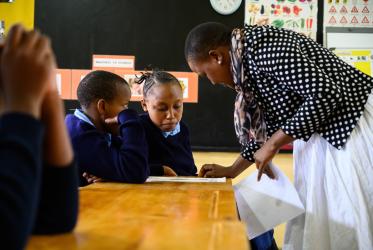Present situation
As Christians and Muslims, we were heartened to learn of many imaginative, local initiatives involving imam and priest, women and men, seeking to rebuild trust and mutual understanding, as well as to engage with sensitive issues, not least gender equality. Such shared action has often taken place in the most difficult situations, from Bethlehem to Kaduna. It was also evident that such welcome developments have to battle against multiple resistance: suspicion or indifference from religious and academic institutions; national contexts where one religion still aspires to hegemonic control of public space or where policy makers remain opposed to making space for any participation of religious actors, situations where the emancipatory potential of religions and inter-religious relations is neutralised by entrenched religious and cultural conservatism.
Common affirmations
As Muslims and Christians, we commit ourselves to the recognition and affirmation of the social fact of religious diversity as God-given. Humility requires of us the recognition that the other is bearer, too, of truth to which we must attend if our own understanding of God is to be deepened and enriched.
This recognition and affirmation must inform all levels of education, formal, non-formal and informal. In our religious formation, in our schools and colleges, in mosque and church, we affirm our determination no longer to speak or write about or for the other without the full participation of the other. We affirm the need to work collaboratively on producing joint textbooks on Christian-Muslim relations, as well as to examine religious and history textbooks in an effort to identify and remove prejudicial and stereotypical characterisations.
We affirm the need to move from general statements of intent to specific collaborative actions, which can make a difference in localities. Christian-Muslim relations have to be rendered visible and concrete: we need to engage the imagination and interest of a range of people outside our usual circles, male and female - especially mothers and teachers - young and old, working people and professionals, as well as actors in civil society. To this end we affirm the need to map good practice in our regions, and identify available materials whether websites, TV soaps, village dramas, collections of sermons and so forth. We need in our joint educational initiative to engage a range of issues which matter to people: environment, poverty and crime.
A critical question which requires further exploration
The critical question this raises for all is whether there is the intellectual, imaginative and institutional space in our respective religious traditions for the "other"? Post 9/11 all religious traditions are being scrutinised: their claims to enable human flourishing, to be custodians of ethical traditions essential for the common good will sound increasingly hollow if we do not demonstrate such active collaboration at many different levels of our respective educational projects.
Two priorities for common action in the next five years:
The creation (or strengthening where such already exist) of structural mechanisms for ensuring dialogue especially in the field of education - religious formation, schooling and at tertiary level - where dialogue is understood as training in living together as a crucial horizon informing both the ethos and content of such educational centres.
The creation (or strengthening where such already exist) of centres to train and equip with appropriate materials dialogue facilitators including imam and priest, social activists and professionals - especially women.
Developing appropriate mechanisms
Holland furnishes a suggestive example of mechanisms developed to enable good relations between imams and priests in that country, through the inclusion in the conversation of imams and priest from Indonesia. We would urge a multiplication of such bilateral arrangements: for Britain this might be Pakistan as a partner, for Germany, Turkey. For other contexts multilateral dialogue will be appropriate.
In addition, we would like prestigious religious centres - Vatican, WCC, Al-Azhar, Madina University - to develop protocols whereby mutuality and collaboration in training about the other be developed. Such initiatives could then lead to regional or national consultations which would further legitimise and encourage such actions.


